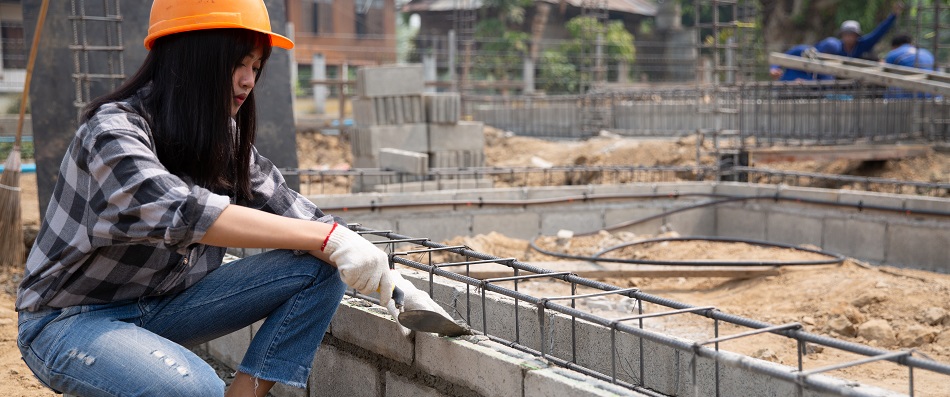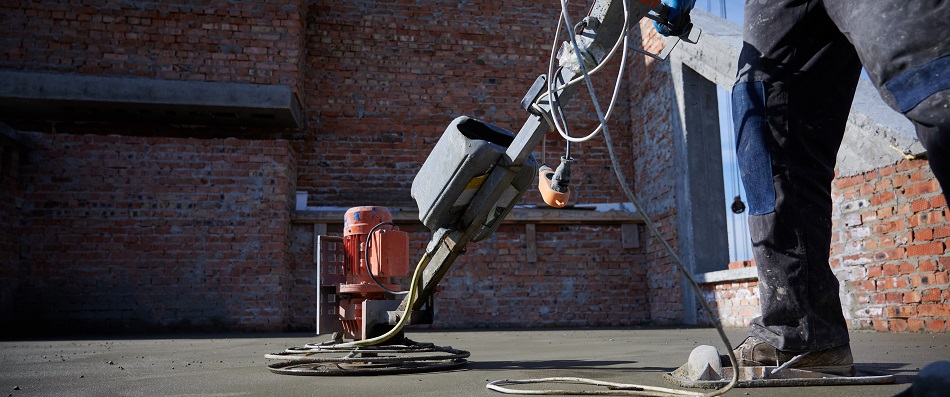The foundation is the basis upon which a building’s complete solidity is rooted in civil engineering and architecture.
The foundation discreetly assumes the enormous burden of giving stability, strength, and durability to any framework, even if the allure of spectacular architectural ideas and an aesthetically appealing façade frequently attracts our attention.
The base serves as the first line of defense against the forces of nature, protecting structures from shifting soils, seismic activity, and environmental challenges. It is much more than just a straightforward support platform.
This article examines the crucial function of concrete foundations in the building sector, examining their design principles, importance in guaranteeing structural integrity, essential role in the security and durability of structures, and the benefits of hiring professionals like Riverview Concrete for your work.
So, if you are from Riverview, FL or nearby areas and want to construct your dream building, then we are ready to serve you.
Importance of Concrete Foundations

Concrete bases play a crucial role in the construction industry as the essential building blocks on which a construction project’s structural stability and integrity depend. Concrete foundations are crucial because they serve as the basis that distributes and sustains the enormous weight of buildings and structures, preventing settlement problems and structural failures.
Support and Load Distribution
The primary function of a base is to evenly distribute the weight of the entire building above it on the earth below. Using foundations prevents possible settlements that can eventually result in structural failure by spreading the weight uniformly across the whole structure. Here at Riverview Concrete in Riverview, FL, we have professionals to analyze the critical positions and make viable decisions.
Stability and Safety
For a structure to be stable and secure, its concrete base must be carefully planned and built, especially when unfavorable conditions like earthquakes, violent winds, or other external pressures are present. To protect the people and maintain the structural integrity of the building, the base operates as the vital anchor that keeps the building from tilting, sliding, or collapsing when subjected to these pressures.
Preventing Soil Movement
Using foundations can effectively mitigate the consequences of soil movement from variations in moisture content or soil consolidation. They limit the effects of soil settlement on the building’s structural components by offering a secure foundation, eliminating uneven settling and potential damage to the superstructure.
Longevity and Durability
Properly designed and built concrete base substantially influence a structure’s long-term durability and structural resilience. They protect the building against settling problems, age-related deterioration, and harmful environmental conditions, guaranteeing it will stand the test of time.
Waterproofing and Moisture Control
Many foundations use waterproofing measures to guard against water intrusion and difficulties associated with moisture. Maintaining the integrity of the base and preventing water damage to the building’s structure and components require proper drainage systems and moisture barriers.
Resisting Uplift Forces
Intricate engineering involves constructing concrete base to withstand uplift pressures from heavy winds or hydrostatic pressure. This essential component keeps the structure from being raised off the ground during extreme weather conditions.
Even Floor and Wall Support
A strong foundation ensures that the building’s interior components are appropriately supported by providing a level and continuous surface for constructing floors and walls. This equal support reduces the possibility of fractures or uneven settling, improving the overall soundness of the structure.
Preventing Frost Heave
To avoid frost heave, a well-insulated and frost-protected base is essential in areas with subfreezing temperatures. Frost heave, which happens when soil expands due to freezing, can seriously harm a building. An appropriately planned foundation is likely to avoid incurring such damage.
Accessibility and Adaptability
The foundations accommodate future additions or adjustments to the structure. This characteristic gives the building the adaptability it needs to meet shifting demands or specifications without jeopardizing its structural integrity.
Components of Concrete Foundations

The experts here have been learning everything from the basics to the advanced aspects of the components of a concrete base to get the exact strength they want. Several parts make up concrete bases, each having a distinct function in ensuring the stability and strength of the building. The essential elements of a concrete base are as follows:
Footings
We call them the horizontal supports that support and distribute the weight of the building to the earth’s footings, and we find them below ground level. Their positioning and design are essential for guaranteeing that the foundation can resist the weight of the building and the forces exerted on it.
Slabs
Concrete slabs that form the building’s base can be located in many parts of the structure, such as the basement, ground level, or upper stories. They sustain the weight of the interior areas and their contents while giving the building’s inhabitants a stable surface.
Columns and Piers
The vertical load-bearing parts, called columns, move the structure’s weight from the slabs to the footings. Similar to pilings but often bigger, piers carry high weights or reinforce walls. Several components are essential to distribute the load vertically and preserve structural integrity.
Reinforcement
To increase the tensile strength of the concrete, reinforcement, frequently in the shape of steel bars or mesh, is added. Concrete has low tensile strength while having excellent compression strength. By adding reinforcement, the foundation can better bear varied stresses, which reduces the risk of fractures and boosts its general toughness and endurance.
Benefits of Hiring a Professional for Concrete Foundation Construction
Expertise and Experience
Professional contractors like Riverview Concrete, bring knowledge and experience to build a solid and trustworthy foundation. They have a thorough grasp of various concrete combinations and their attributes due to years of experience working in the construction sector, allowing them to select the most appropriate mix for specific projects.
Their understanding of appropriate building methods guarantees that the foundation is created to the highest standards, reducing the possibility of further structural problems.
Professional builders also maintain neighborhood building standards and rules, ensuring the foundation complies with all legal and safety requirements.
We have a team of the most experienced and knowledgeable experts that take insight from each location, condition, and formation to get the best results out of it.
Quality Assurance
If you are in Riverview, FL, hiring experts like our team, will ensure the foundation is built with great care and attention to detail. We use the proper tools and machinery to ensure accuracy in every step of the building process. Professional builders adhere to a higher degree of workmanship, resulting in a strong base designed to last, from precise measurements to skilled leveling procedures.
Time and Cost Efficiency
Construction projects must carefully balance time and money; experienced contractors are experts. They have streamlined building methods due to their significant expertise, allowing them to manage every project stage effectively.
They can handle every duty with efficacy and efficiency, from excavation and formwork to pouring and finishing concrete. They can also purchase supplies at reasonable costs due to their access to a network of suppliers and resources, which aids in keeping the project within the set spending limit.
Customization and Design Support
Every building project has its specific requirements and difficulties. Professional builders collaborate closely with architects and engineers to adapt the foundation design to the particular requirements of the building.
A foundation is painstakingly crafted to match the design and intended use of the structure by carefully analyzing factors, including soil characteristics, load-bearing requirements, and environmental issues. This personalization degree ensures the base is ideal for the building it supports.
Warranty and Insurance
Professional contractors with a good reputation stand by the caliber of their work and show this confidence by providing guarantees for their projects. With the knowledge that any possible problems resulting from the construction process would be handled and fixed, these guarantees provide the property owner peace of mind.
Professional contractors also carry insurance to safeguard themselves and the property owner from unanticipated mishaps or damages during construction. This insurance protection provides monetary security and further strengthens the dependability and responsibility of using specialists to build concrete base.
Conclusion
Concrete foundations are essential for maintaining the strength of structures. They offer crucial support, balanced weight distribution, durability, and stability. Adequate site appraisal, accurate building methods, and creative underpinning solutions can efficiently solve issues like soil settlement, fractures, and base instability.
Using competent contractors further improves foundation buildings’ effectiveness, efficiency, and long-term dependability. If you are looking to hire a professional in Riverview, FL, then Riverview Concrete is what you are looking for.





